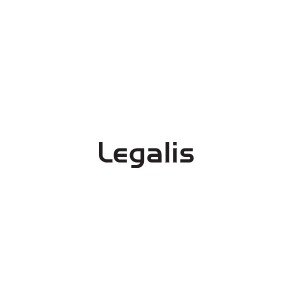Best Employment & Labor Lawyers in Oslo
Share your needs with us, get contacted by law firms.
Free. Takes 2 min.
List of the best lawyers in Oslo, Norway
About Employment & Labor Law in Oslo, Norway
Employment and labor law in Oslo, Norway is governed by a robust framework designed to protect the rights and responsibilities of both employees and employers. The laws encompass a wide range of issues including employment contracts, workplace safety, wages, working conditions, anti-discrimination measures, and termination processes. Norway follows a social model emphasizing cooperative dialogue between employers, employees, and unions to ensure a fair and balanced work environment.
Why You May Need a Lawyer
There are several situations in which you may need legal assistance in the field of employment and labor in Oslo, Norway. These include disputes over employment contracts, claims of unfair dismissal, issues regarding workplace discrimination or harassment, wage disputes, and matters concerning employee rights and benefits. A lawyer specializing in employment and labor law can provide crucial advice, represent you in negotiations, and ensure your rights are protected according to Norwegian law.
Local Laws Overview
Key aspects of local laws in Oslo, Norway relevant to employment and labor include:
Employment Contracts: Norwegian law requires that all employees receive a written contract that outlines key elements of their employment, including job duties, salary, working hours, and duration of employment.
Working Hours and Overtime: The standard working hours are 40 hours per week. Any work beyond this is considered overtime and must be compensated accordingly.
Wages: While Norway does not have a statutory minimum wage, collective agreements often set wage standards within various industries.
Workplace Safety: Employers are legally required to maintain a safe and healthy work environment, adhering to regulations set forth by the Working Environment Act.
Anti-Discrimination: The Equality and Anti-Discrimination Act prohibits discrimination based on gender, ethnicity, religion, disability, sexual orientation, age, and other factors.
Termination and Unemployment: The process for employee termination is highly regulated to prevent unjust dismissals, and involuntarily terminated employees may be entitled to unemployment benefits.
Frequently Asked Questions
What is the legal notice period for terminating an employment contract in Oslo, Norway?
The notice period typically ranges from one to six months, depending on the length of employment and the terms of the employment contract.
Are non-compete clauses enforceable in Norway?
Yes, but they must be reasonable in scope, duration, and geographical area to be enforceable under Norwegian law.
How is workplace discrimination handled in Oslo, Norway?
Discrimination claims can be filed with the Equality and Anti-Discrimination Ombud, and legal action can also be taken through the courts.
What are my rights regarding sick leave and medical benefits?
Employees are entitled to sick leave with pay, provided they have a valid medical certificate. Employers cover the first 16 days, after which the National Insurance Scheme takes over.
How can I address a refusal of overtime payment?
Employees can first raise the issue internally, and if unresolved, they can seek assistance from the labor union or a lawyer to enforce their rights.
Can my employer change my employment terms without my consent?
No, significant changes to employment terms typically require employee consent or proper notice and justifiable grounds.
Do I have the right to unionize in Oslo, Norway?
Yes, Norwegian law strongly supports the right to unionize and engage in collective bargaining.
What steps should I take if I face harassment at work?
Document the incidents, report them to your employer, and seek guidance from a lawyer or the labor union if necessary.
Can temporary employees be converted to permanent ones?
Yes, after a certain period, typically one year, temporary employees may have rights to permanent positions.
What legal protections exist for whistleblowers in Norway?
Whistleblowers are protected under the Working Environment Act, which prohibits retaliation against employees who report wrongdoing.
Additional Resources
For further information and support, consider contacting the following resources:
The Norwegian Labour Inspection Authority (Arbeidstilsynet): Provides information on workplace regulations and safety.
The Equality and Anti-Discrimination Ombud (Likestillings- og diskrimineringsombudet): Offers support and handles discrimination complaints.
The Norwegian Confederation of Trade Unions (LO): Represents workers and provides resources on labor rights.
The National Insurance Scheme (NAV): Administers various social benefits, including unemployment insurance.
Next Steps
If you need legal assistance in employment and labor matters, consider the following steps:
Identify Your Issue: Clearly define the problem or concern you are facing.
Consult a Lawyer: Contact a lawyer who specializes in employment and labor law for consultation and advice. Many lawyers offer initial consultations to discuss your case.
Document Everything: Keep thorough records of all relevant communications, contracts, and incidents related to your issue.
Seek Mediation or Union Support: Explore the option of mediation or seek support from your labor union if you are a member.
Consider Legal Action: If necessary, be prepared to take your case to court to ensure your rights are upheld.
Lawzana helps you find the best lawyers and law firms in Oslo through a curated and pre-screened list of qualified legal professionals. Our platform offers rankings and detailed profiles of attorneys and law firms, allowing you to compare based on practice areas, including Employment & Labor, experience, and client feedback.
Each profile includes a description of the firm's areas of practice, client reviews, team members and partners, year of establishment, spoken languages, office locations, contact information, social media presence, and any published articles or resources. Most firms on our platform speak English and are experienced in both local and international legal matters.
Get a quote from top-rated law firms in Oslo, Norway — quickly, securely, and without unnecessary hassle.
Disclaimer:
The information provided on this page is for general informational purposes only and does not constitute legal advice. While we strive to ensure the accuracy and relevance of the content, legal information may change over time, and interpretations of the law can vary. You should always consult with a qualified legal professional for advice specific to your situation.
We disclaim all liability for actions taken or not taken based on the content of this page. If you believe any information is incorrect or outdated, please contact us, and we will review and update it where appropriate.
Browse employment & labor law firms by service in Oslo, Norway
Oslo, Norway Attorneys in related practice areas.















